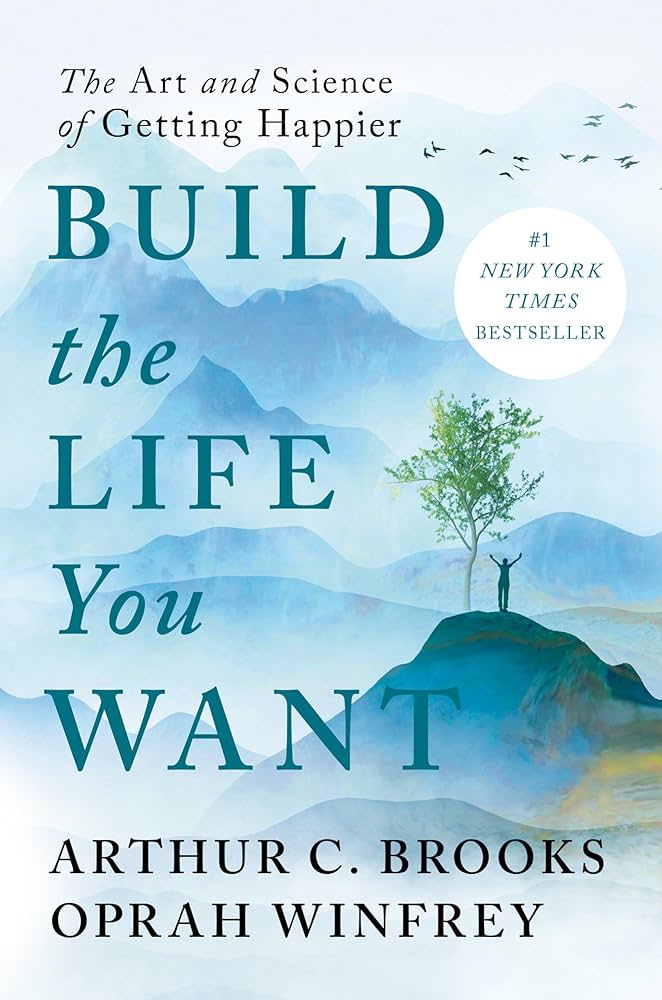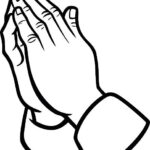Oprah Winfrey first came across American author and academic Arthur C. Brooks through his column in The Atlantic, “How to Build a Life.” Oprah read Arthur’s column throughout the COVID-19 pandemic, and she was fascinated by the subject matter he was discussing: Living a life with purpose and meaning. Oprah became a fan, and they ultimately collaborated to write the Build the Life You Want Book. One of the common themes that always came up in Oprah’s interviews during her 25 years of running the Oprah Winfrey Show was her guest and the universal desire to be happy.
Oprah on Arthur Brooks: “Arthur exudes a kind of confidence and certainty about the meaning of happiness that’s both comforting and galvanizing.” In Build the Life You Want: The Art and Science of Getting Happier, Arthur C. Brooks and Oprah Winfrey share tools, strategies, research and tips for leading a happier life.
Books Theme:
- Teach strategies for leading a happier life by optimizing for the four pillars of happiness: Family, Friendship, Work and Spirituality.
You are not helpless against the tides of life, but that with a greater understanding of how your mind and brain work, you can build the life you want, starting inside with your emotions, and then turning outward to your family, friendships, work, and spiritual life.
Strive for happier, not happy
A relative, contextualized, fluid condition, not some perfect fixed ideal of nirvana. Happier is not a state of being but a state of doing—not a thing you wait around and hope for, but an achievable change you actively work toward.
About Arthur Brooks
Arthur C. Brooks is the Parker Gilbert Montgomery Professor of the Practice of Public and Nonprofit Leadership at the Harvard Kennedy School, and Professor of Management Practice at the Harvard Business School, where he teaches courses on leadership, happiness, and social entrepreneurship. He is also a columnist at The Atlantic, where he writes the popular weekly “How to Build a Life” column.
Happiness is a combination of enjoyment, satisfaction, and purpose. To get happier is to get more of these elements, in a balanced way—not all of one and none of another.
Enjoyment takes work and forgoing pleasures; satisfaction requires sacrifice and doesn’t last; purpose almost always entails suffering.
Favourite Takeaways from reading Build the Life You Want by Arthur C. Brooks and Oprah Winfrey.
The macronutrients of happiness
Happy feelings are not happiness; they are evidence of happiness. The happiness itself is the real phenomenon, and like the dinner, it can be defined as a combination of three “macronutrients,” which you need in balance and abundance in your life. The macronutrients of happiness are enjoyment, satisfaction, and purpose.
Enjoyment
Pleasure is animal; enjoyment is completely human. Pleasure emanates from parts of the brain dedicated to rewarding us for certain activities, like eating and sex, that in earlier times would help keep us alive and passing on our genes.
Enjoyment takes an urge for pleasure and adds two important things: communion and consciousness. Pleasure is easier than enjoyment, but it is a mistake to settle for it, because it is fleeting and solitary. All addictions involve pleasure, not enjoyment.
To be happier, you should never settle for pleasure, but rather make it into enjoyment. Of course, that involves a certain cost. Enjoyment requires an investment of time and effort. It means forgoing an easy, effortless thrill. It often means saying no to cravings and temptations. Sometimes, getting enjoyment is hard.
Satisfaction
It’s that thrill from accomplishing a goal you worked for. It’s that feeling you have when you get an A in school or a promotion at work; when you finally buy a house or get married. It’s how you feel when you do something difficult—maybe even painful—that meets your life’s purpose as you see it.
While satisfaction can bring a huge amount of joy, it is also extremely elusive: you think that meeting a goal will give you permanent satisfaction, but it is, of course, temporary.
Purpose
We can make do without enjoyment for a while, and even without a lot of satisfaction. Without purpose, however, we are utterly lost, because we can’t deal with life’s inevitable puzzles and dilemmas. When we do have a sense of meaning and purpose, we can face life with hope and inner peace.
Getting happier, in other words, requires that we accept unhappiness in our lives as well, and understanding it isn’t an obstacle to our happiness.
The Four Pillars of Happiness
- Family. These are the people we are given in our lives and generally don’t choose (except our spouses).
- Friendship. This is the bond with people we love deeply but who aren’t our kin.
- Work. This is our toil to earn our daily bread, to create value in our lives and in the lives of others. It might be paid or unpaid, in the marketplace or at home.
- Faith. This does not mean a specific religion but rather is a shorthand term for having a transcendent view and approach to life.
Build Friendships That are Deeply Real
Friendship is the second pillar of building a happier life. Friends can lighten the load of the heaviest days. There are few joys in life as wonderful as seeing a close friend after a long separation. Without friends, no one can thrive. Friendship accounts for almost 60 percent of the difference in happiness between individuals, no matter how introverted or extroverted they are.
“Expedient friendships might be a pleasant—and certainly useful—part of life, but they don’t usually bring lasting joy and comfort. If you find that your social life is leaving you feeling a little empty and unfulfilled, it might just be that you have too many deal friends and not enough real friends.”
Don’t just spend time away from work; spend it with people who have no connection to your work. (If your job is taking care of your family, this principle still applies. You need to have relationships with people who see you as more than a provider and caretaker.)
The Four Idols: money, power, pleasure, and prestige.
The thirteenth-century philosopher and theologian Thomas Aquinas listed what he called idols that occupy our days and waste our lives: money, power, pleasure, and prestige. These idols all stand in the way of enjoyment, satisfaction, and purpose. They substitute pleasure for enjoyment, set our hedonic treadmill on “extra high” to make satisfaction harder to attain and keep, and focus us on things that obviously are trivial, not meaningful. The four idols make getting happier harder
The Inner-Router Paradox
The surest way to improve your inner world is to focus on the outer world, because happiness inside comes from looking outside. Our lives are spent in connection—to other people, to our work, to nature and the divine—and the more we do to improve those connections, the better off we are.
A teacher is not the one who knows everything; it’s simply the one who shares what they’ve learned.
All the Best in your quest to get better. Don’t Settle: Live with Passion



Comments are closed.